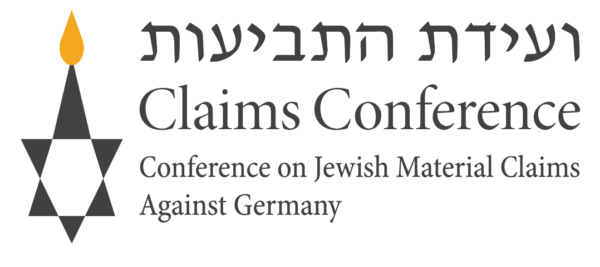Major Increase in Homecare Funds for Holocaust Survivors from Claims Conference Negotiations with Germany
Claims Conference in the Media | Press Inquiries | Publications | Videos | Updates
This post is for historical informational purposes only. Please do not refer to this post for information pertaining to current Claims Conference programs. Visit What We Do for current program guidelines and information. Thank you.
March 12, 2010
Claims Conference Negotiates Total of €91 Million (USD $125 Million) in Additional Funding for Survivor Homecare and Pensions
With increasing frailty and disability, the needs of aging Holocaust victims have become more urgent. The Claims Conference has been pressing Germany in recent years to provide funds so survivors may receive the assistance they need to remain in their own homes, a matter of great importance to many.
The negotiations resulted in €55 million (approximately $77 million) for homecare and social services in 2010, a significant increase over the €30 million obtained for 2009. Other sources of restitution-related funding for social services are on the decline as the need for such funding is increasing due to the aging of the victims.
The Claims Conference allocates the funds from the German government to agencies assisting needy Jewish Holocaust victims around the world. Funding is used to assist in essential activities of daily living, such as cooking, eating, dressing, washing, taking medication, shopping, and light housekeeping.
Information on these agencies is at www.claimscon.org/allocations.
Article 2 and Central/Eastern European Funds Liberalization
The German government and Claims Conference have agreed that applications from Holocaust survivors who were in a concentration camp and do not receive an ongoing pension from the BEG, Israeli Ministry of Finance, Article 2 Fund or the Central and Eastern European Fund (CEEF), will be reviewed to see whether those cases are cases of hardship. Such survivors should contact the Claims Conference.
Under the Article 2 Fund and the related CEEF, certain survivors were previously eligible for payment only if they were imprisoned in a concentration camp for at least six months. The German government agreed today to allow for a special review of the cases of those who were in concentration camps, even for a short period of time, recognizing the Claims Conferences assertion that even a short time in a Nazi camp resulted in unimaginable suffering and deprivation.
This change has been a long-sought goal in negotiations with Germany.
The Article 2 Fund makes monthly payments of €291 and the CEEF makes monthly payments of €240 to certain Holocaust survivors. The Claims Conference also continues to negotiate for CEEF payments equal to those from the Article 2 Fund. Full eligibility criteria for both are at www.claimscon.org/article2.
Western European Survivors
The Claims Conference obtained Article 2 Fund payments for approximately 1,300 new claimants who were citizens of certain Western European countries at the time of their persecution and at the time of the Global Agreement between Germany and their countries of origin, resulting in an estimated additional estimated €36 million (approximately $50 million) to be received over the next 10 years.
Payments can now be made to survivors who have already received up to a maximum of 35,000 DM (€17,895) from their countries of origin as a result of those countries postwar agreements with Germany.
The Article 2 Fund has paid more than $2 billion to more than 80,000 Holocaust survivors since it was established in 1992 through negotiations with the German government.
Eligibility criteria for the Article 2 Fund is at www.claimscon.org/article2.
Significant open issues regarding compensation for Jewish Holocaust victims remain, which the Claims Conference put forward in these negotiations with the German government. The German government and the Claims Conference agreed to meet over the coming months to review these issues in an effort to reach agreement.
The negotiating delegation comprised Ambassador Stuart Eizenstat, Special Negotiator, and Andrew Baker, Ben Helfgott, Georg Heuberger, Saul Kagan, Roman Kent, Reuven Merhav, Greg Schneider, and Marian Turski. Working with them were Karen Heilig, Assistant Executive Vice President, and Konrad Matschke and Christiane Reeh.
March 12, 2010

